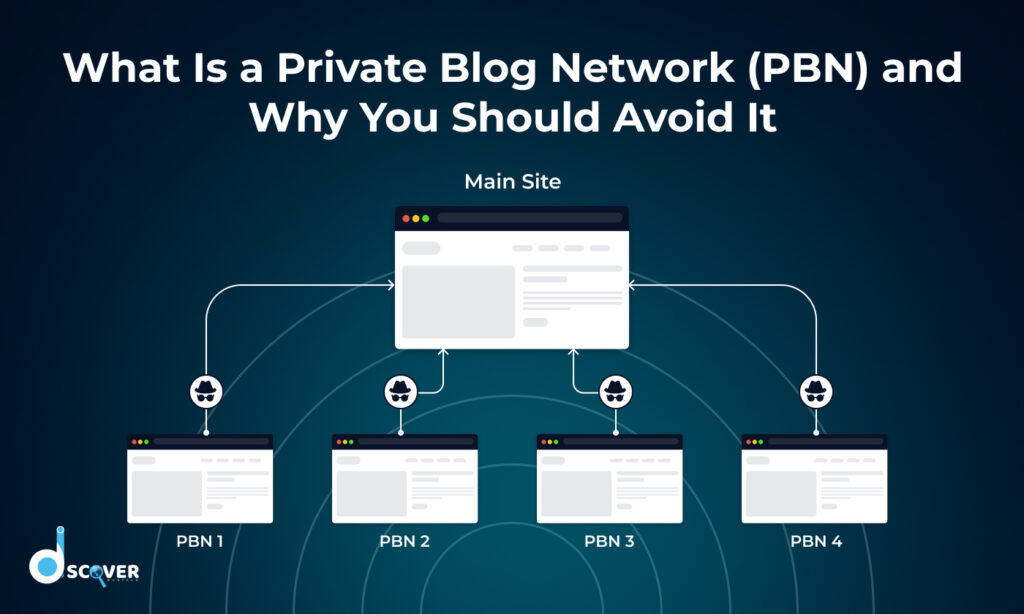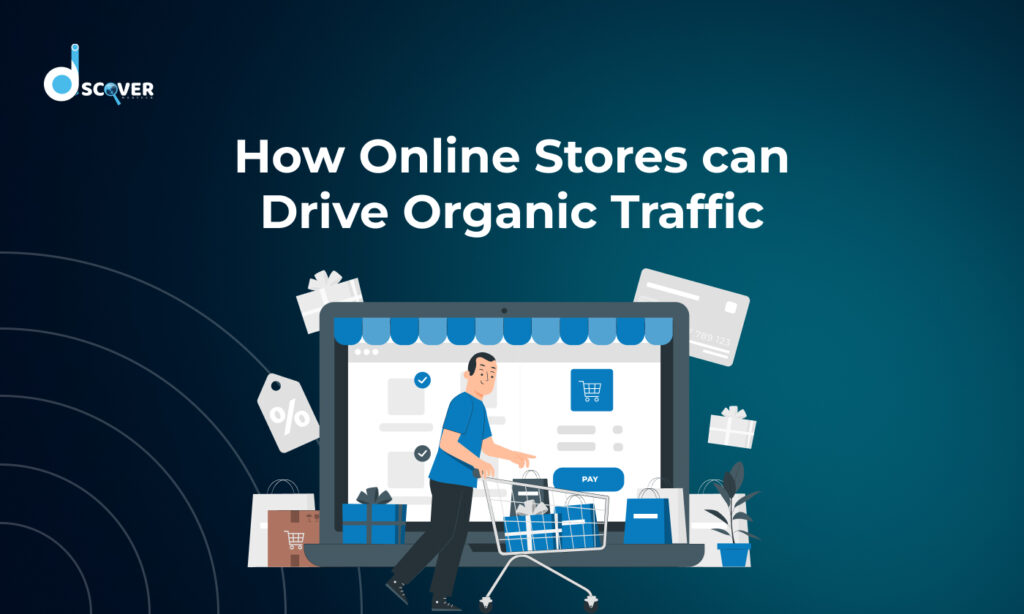
In our SEO journey at Discover WebTech, we’ve explored many strategies to boost rankings — both the good and the not-so-great. One term that often sparks curiosity (and controversy) is the Private Blog Network, or PBN.
If you’ve ever come across PBNs and wondered whether they’re worth the risk, you’re in the right place. In this blog, we’re breaking down what PBNs actually are, why some people use them, and why — as a team that believes in ethical SEO — we recommend staying far away from them.
What Is a Private Blog Network (PBN)?
So let’s clear this up. A Private Blog Network is a group of websites — often built using expired domains — that are linked together with the goal of boosting another site’s ranking in search engines. The idea is to pass on “authority” through backlinks to a main website, usually one that’s selling something or targeting competitive keywords.
The tricky part? These sites are designed to look like separate entities, but they’re all controlled by the same person or team — making them deceptive by nature.
Important Note: A study by Ahrefs showed that during one of Google’s updates, 23% of sites using PBNs were deindexed — that’s nearly 1 in 4! That’s a huge risk to take for a short-term gain.
Why Do People Use PBNs?
We get it — SEO can be slow, and some people want quicker results. That’s where PBNs come in. When someone builds a PBN, they have full control over backlinks, anchor text, and content — which can seem like a dream for ranking quickly.
Here’s why some marketers are tempted by them:
- Faster Rankings – Backlinks from high-authority (or seemingly authoritative) domains can push rankings up fast.
- Full Anchor Text Control – You can choose the exact keyword-rich text linking back to your site.
- Less Reliance on Outreach – No need to ask others for backlinks — it’s all DIY.
But here’s the thing: Just because you can do it doesn’t mean you should.
Important Note: Building a PBN isn’t cheap — estimates suggest creating one with 80 domains can cost anywhere from $6,850 to over $37,000. That’s a major investment into something that could get wiped out overnight by Google.
The Risks of Using Private Blog Networks
Let’s talk honestly — according to SEO experts. PBNs are a gamble. And as a team that’s all about long-term digital success, we don’t believe in shortcuts that can burn your site later. Here’s why:
1. You’re Breaking Google’s Rules
Google is very clear — PBNs fall under manipulative link schemes, which go against its Webmaster Guidelines. That means if your site is caught participating in one, Google can penalize you hard — or worse, remove your site from search results entirely.
2. They’re Expensive to Maintain
Beyond setup, keeping your PBN hidden from Google is a full-time job. You need to pay for private hosting, unique IPs, regular content updates — and make sure none of the sites look connected.
3. Detection Is Getting Smarter
Google is constantly improving its algorithms. Similar content, duplicate themes, shared IPs — all these raise red flags. And once Google spots a PBN footprint, it doesn’t take long for the dominoes to fall.
4. It’s Not a Fair Game
SEO should be about providing value, not gaming the system. Using PBNs feels dishonest, and over time, that can affect your brand’s trustworthiness.
5. Scaling Is a Nightmare
Even if you manage to make a small PBN work, growing it just increases the risk. The bigger your network, the easier it is for Google to find patterns — and the harder it is to keep things under wraps.
Important Note: A study in 2019 found that 67% of PBN sites created for affiliate SEO disappeared within a year. That’s a lot of effort for something so fragile.
Google’s View on PBNs
Here’s the reality — Google has been cracking down on PBNs for years.
Let’s take a quick look at key updates:
- Penguin (2012): Cracked down on unnatural backlinks
- Panda (2014): Targeted low-quality and thin content
- Fred (2017): Hit ad-heavy, low-value sites that often relied on shady links
And PBNs? They’ve been directly affected every time.
Important Note: After Google’s PBN crackdown in September 2014, about 23% of PBNs saw their domains deindexed. Google is watching — and taking action.
Why You Should Avoid Using PBNs
We’ve seen businesses lose years of progress due to penalties from link schemes like PBNs. It’s just not worth it — especially when there are better (and safer) ways to grow your visibility.
Here’s what can happen:
- You Get Penalized – Either your rankings plummet, or your site disappears from search
- You Lose Time & Money – That fancy network you built? One update, and it could all vanish
- Your Reputation Suffers – No one wants to work with a brand using black-hat tactics
- Your Success Isn’t Stable – With every Google update, you’re gambling
Important Note: In Google’s March 2024 Core Update, they started targeting expired domain abuse, which is a common foundation for PBNs. The message is clear: no more shortcuts.
Safer & Smarter Alternatives to PBNs
Here at Discover WebTech, we stick with strategies that actually work — sustainably. If you want to build real, lasting authority, here’s what we recommend:
- Guest Blogging: Write for industry-relevant websites and earn genuine backlinks
- Content Marketing: Create helpful, in-depth content that people actually want to link to
- Digital PR: Build real connections with publishers, journalists, and influencers
- Social Media Promotion: Share your content widely and boost engagement
- Network Naturally: Talk to others in your industry — partnerships bring organic links
Important Note: A Moz survey showed that 41% of SEO professionals say earned backlinks from reputable sites are one of the most effective ranking strategies. Now that’s the kind of stat we like to hear!
Final Thoughts
At the end of the day, we believe in building websites that deserve to rank — not just hack their way to the top.Private Blog Networks might sound clever, but they’re more trouble than they’re worth. With smarter, ethical strategies, you can build a site that not only ranks — but stays ranked. And that’s what we’re here to help with.
Contact us to know more about Digital MArketing Services
Check out our latest blog on “How to Use Screaming Frog to Find SEO Issues on Your Website”


